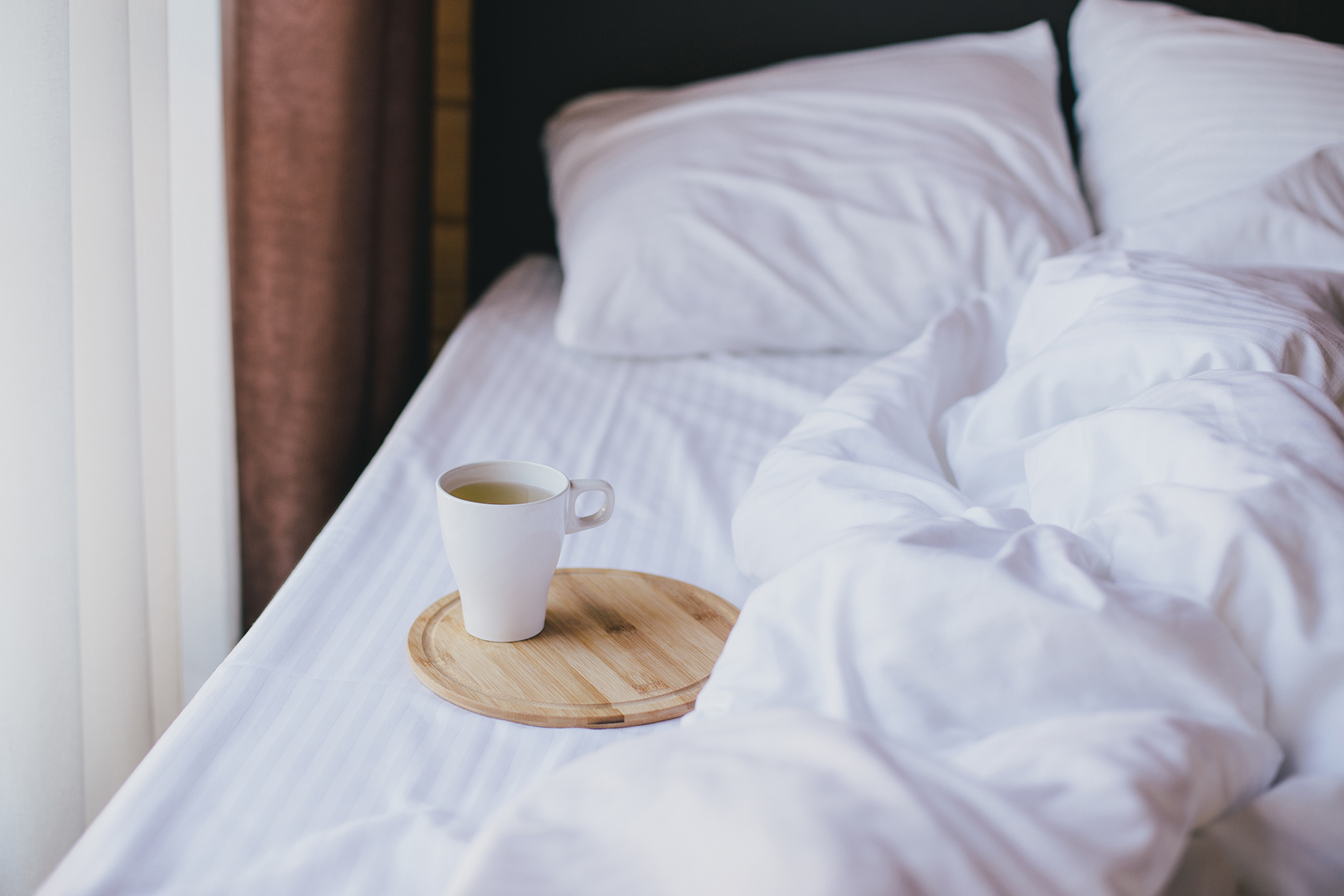Sleep Hygiene
Good sleep hygiene is what we can do. What’s that, you ask? Sleep hygiene means habits that help you have a good night’s sleep, including both in your bedroom environment and throughout your daily routines. Signs of poor sleep hygiene include having a hard time falling asleep, experiencing frequent sleep disturbances, and suffering daytime sleepiness. If that sounds like you, never fear! Replacing activities that can disrupt your sleep with science-backed (just how we like it) healthy sleep practices can mean the difference between a restful night, and a restless night.
While it can seem overwhelming at first, the best way to break bad habits and create healthy ones is to make small changes at a time. Some tips are easier to include than others – take a look at your daily routines and habits and see where changes can be made to help you achieve a full night’s (beauty) sleep.
Here are some Sleep Hygiene Rules that will help you overturn your poor sleeping habits and get you some quality zzz’s.
1. Set thy sleep schedule:
One of the most important rules for good sleep hygiene is to stick to a schedule. Try and wake up at the same time each day without too much variation and create a ‘wind down’ window in the evening, at least 30 minutes to an hour before your set bedtime. Hormones regulate our circadian rhythm (an internal process that regulates the sleep-wake cycle) and by remaining consistent with our sleep schedule, this helps to set our internal body clock (literally).
2. Obey thy body clock:
While it’s good to stick to the set sleep schedule, there are exceptions. If you get into bed and you’re not sleepy, don’t lie there watching the minutes tick away – this will only lead to frustration and stress. Get out of bed and do something relaxing for 20 or 30 minutes, such as reading, light stretching, or having a warm shower.
3. Build thy daily habits:
Creating healthy habits throughout the day will set the path for your night of quality zzz’s. When you wake up in the morning, make sure you get some early morning sunshine to let your body clock know that it’s daytime now and time to wake up (again, circadian rhythm). Incorporate movement and physical activity into your day, in whatever form you like best – walking, running, the gym or a team sport – you get it. Thirdly, restrict in-bed activity for sleeping only (the only exception being intimate moments). Avoid using your laptop to watch TV in bed, don’t work from bed, don’t eat in bed – only sleep in bed, okay? Again, this will reinforce in your mind that when you get in to bed, it’s time to sleep.
4. Relax thy mind:
As much as we wish we could, our bodies aren’t made to be stimulated and alert all day and then drop into sleep at the drop of a hat. We need time to unwind and calm our mind from all the crazy things that have happened throughout our day. Create a consistent nightly routine that will help you to wind down and relax your mind before bedtime. This should be at least 30 minutes before bed, but an hour is preferable. In this hour, dim the lights, unplug electronics, and practice methods of relaxation that work for you. This might include reading, meditation, light stretching, or a combination of all three.
5. Remove thy stimulants:
Yes, this one includes your phone (and yes, mum was right about it). Reducing stimulants throughout the day and during wind-down time helps your mind know that it’s coming up to sleep time. Limit afternoon caffeine and avoid late-night exercise in the hours before bed. In the evening, avoid alcohol (although it can cause drowsiness, it will interfere with the quality of sleep throughout the night) and avoid cigarettes during wind-down. Remove blue light during your wind-down hour, including your phone and TV.
6. Create thy slumber room:
This one is all about the zen-spa vibes. Make sure your bedroom is calm, quiet, and comfortable. Ensure your bed is comfortable, the temperate is suitable (cooler is better, with enough bedding to keep you warm) and there are no distracting lights or noises (use the ‘do not disturb’ function on your phone to stop it lighting up from notifications, and turn your alarm clock around if it emits light). You might also find it helps to use calming scents before bed, whether it’s a spray on your pillow, candle, or diffuser.
Too long, didn’t read? Ahem, let us summarise – with healthy habits throughout the day, a consistent sleep schedule, comfortable bedroom, and a relaxing pre-bed routine with minimal disruptions, you can achieve better quality, and quantity, of sleep.
Sleep is when your body heals and restores itself, contributing to healthy immune and mental function. Research shows that after a good night’s sleep, you’re likely to feel less anxious and more confident. If you’ve tried and failed to improve your sleep with good sleep hygiene, speak with your health professional to explore other ideas, such as natural supplements and foods that can promote restful sleep.
Just remember, some tips are easier to include than others, but if you stick with them then your chances of achieving restful sleep will improve.







